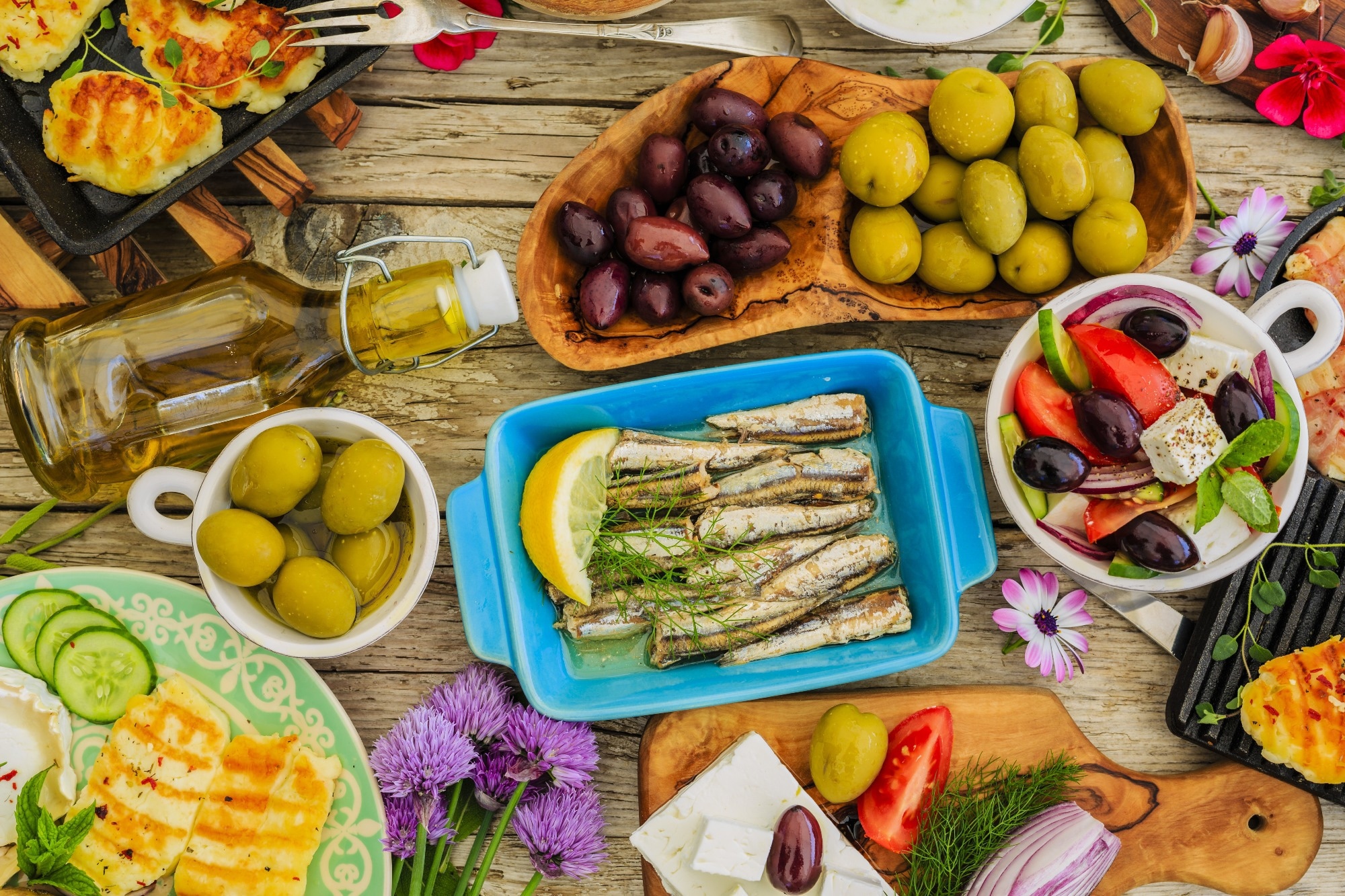A large UK study reveals that while a nutrient-rich diet may enhance happiness and purpose in later life, its benefits intertwine with mood, health, and wealth.

Study: Dietary intake of fruits and vegetables, polyunsaturated fats, and fish and positive psychological well-being in older adults: A cross-sectional analysis of the English Longitudinal Study of Ageing (ELSA). Image Credit: gorillaimages / Shutterstock
In a recent article in the British Journal of Health Psychology, researchers in the United Kingdom investigated whether middle-aged and older adults who consume more fish, vegetables, fruits, and healthy fats experience greater happiness and display higher levels of life satisfaction and well-being.
Their results suggest that diet could help promote well-being, but the evidence was inconclusive, indicating that rigorous longitudinal studies are needed.
Background
The global population is ageing rapidly, raising concerns about maintaining health and quality of life in later years. Diet is a key modifiable factor influencing both physical and mental health.
While much research has focused on how diet reduces negative psychological states such as depression, less is known about its role in fostering positive well-being.
Positive well-being encompasses three dimensions: eudemonic well-being (encompassing meaning, purpose, and personal growth), hedonic well-being (characterized by happiness and positive emotions), and evaluative well-being (reflected in life satisfaction).
Fruits and vegetables, polyunsaturated fats (PUFAs), and fish are dietary components widely recognized for their health benefits. Studies link them to reduced depression and psychological distress, potentially through mechanisms like improved gut health, reduced inflammation, and enhanced neurotransmitter activity.
However, fewer studies have assessed whether these foods actively boost positive well-being. Evidence from UK and international surveys suggests that higher fruit and vegetable intake is associated with greater happiness and life satisfaction, while PUFAs and fish may also support mood regulation and brain health.
However, socioeconomic, demographic, and health-related factors strongly influence both diet and well-being, complicating the relationship, and research on this topic remains limited.
About the study
This study used data from the 2018–19 wave of the English Longitudinal Study of Ageing (ELSA), which included adults aged 50 and older. After exclusions, 3,103 participants were analyzed. Dietary intake of fruits and vegetables, PUFAs, and fish was assessed using a validated 24-hour dietary recall completed on two random days.
Positive well-being was measured across three domains: eudemonic well-being (15 items from the CASP-19 scale, each scored 0–3, with a range of 0–45 and a mean of 11.1), hedonic well-being (a single-item rating of happiness from the previous day), and life satisfaction (the five-item Satisfaction with Life Scale). Higher scores indicated better well-being.
To reduce bias, the models were adjusted for a range of covariates, including total energy intake, age, gender, ethnicity, wealth, education, living alone, social isolation, limiting long-standing illness, and depressive symptoms. Fruit and vegetable consumption, as well as PUFA variables, were square-root transformed to achieve normality, while fish intake was coded as a binary variable (none vs. some).
Associations between diet and well-being were tested using multivariable linear regression. Five models were run progressively, first adjusting for demographic and lifestyle factors, and finally for depressive symptoms, to determine whether diet–well-being associations were independent of negative psychological states.
Key findings
The final sample had a mean age of 69.3 years, with just over half of the participants being women and nearly all identifying as White. Participants consumed, on average, two portions of fruit and vegetables per day, with PUFAs contributing about 2.5% of total daily energy (well below the recommended ~6.5%).
Over half reported no fish intake on the recall days. Well-being scores indicated relatively high levels of eudemonic well-being (mean = 11.1 on a 0–45 scale), happiness (7.9/10), and life satisfaction (21.6/30).
Correlational analyses showed small but positive associations between all three dietary factors and the three well-being domains. Stronger correlations were observed among the well-being measures themselves. Negative associations emerged for social isolation, long-standing illness, and depressive symptoms.
Regression analyses revealed that fruit and vegetable intake was consistently and positively associated with eudemonic well-being across all models, even after adjusting for depressive symptoms.
However, its associations with happiness and life satisfaction became non-significant after adjusting for depressive symptoms and long-standing illness, respectively.
PUFA intake was initially linked to eudemonic well-being, but this became non-significant once depressive symptoms were considered. Fish intake was found to have a positive relationship with eudemonic well-being in earlier models, but this relationship was not observed in fully adjusted models.
For happiness, only fish consumption remained significant in the final model. Associations between fruit and vegetable intake, PUFA intake, and happiness and life satisfaction were attenuated when depressive symptoms were included, suggesting a partial overlap between diet, mood, and well-being.
Conclusions
This study examined the relationship between diet and positive psychological well-being in older English adults.
Results suggest that different foods influence well-being in distinct ways: fruit and vegetable intake was most strongly linked to eudemonic well-being, while fish intake predicted happiness, even after adjusting for depressive symptoms.
PUFA intake showed weaker, less consistent associations. Overall, diet appeared to play a role, but many relationships were reduced when factors such as health, wealth, or mood were considered, highlighting the complex interdependencies.
Key strengths include a large, nationally representative sample and examination of multiple dietary exposures across three domains of well-being, with careful adjustment for confounders.
However, limitations include the cross-sectional design, reliance on self-reported diet and well-being, and potential recall bias, preventing causal conclusions.
The findings underscore diet as a modifiable factor with potential to enhance well-being in ageing populations. Increasing fruit, vegetable, and fish consumption may be a simple and cost-effective strategy, although longitudinal and experimental studies are needed to confirm causality.
Journal reference:
- Dietary intake of fruits and vegetables, polyunsaturated fats, and fish and positive psychological well-being in older adults: A cross-sectional analysis of the English Longitudinal Study of Ageing (ELSA). Theeraoat, P.T., Hackett, R.A., Chilcot, J., Steptoe, A. British Journal of Health Psychology (2025). DOI: 10.1111/bjhp.70022, https://bpspsychub.onlinelibrary.wiley.com/doi/10.1111/bjhp.70022